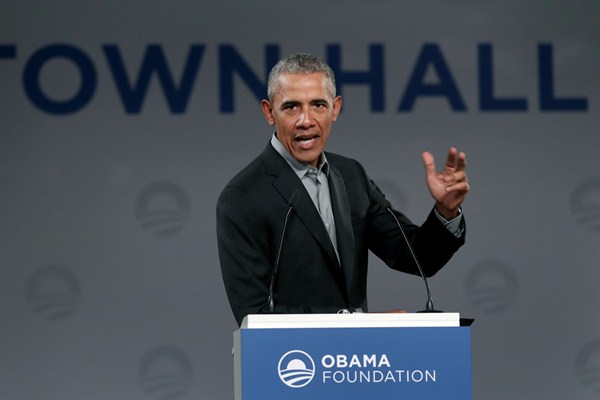A decade ago, President Barack Obama came into office promising a different kind of American foreign policy, having been elected on a platform of ending the wars in Iraq and Afghanistan, repairing America’s global image, and reviving American diplomacy and even restraint. Americans may have wanted their nation to adjust its global strategy, but for reasons that had more to do with domestic politics than world events, the debate over how to do so devolved into rancor and caricature under Obama. America was headed in the right direction until hyperpartisanship derailed everything, leaving the public convinced that something is wrong but unsure how to fix it. Once again, the United States is left reevaluating its role in the world today.
These kinds of shifts in foreign policy, often in fits and starts, are not unusual in American history. Early on, the United States tried to stay out of great-power politics as much as it could. When that became impossible, America was a reluctant power—at least initially. It avoided involvement in World War I for three bloody years. It did not join the League of Nations, which was intended to prevent another great-power war, even though U.S. President Woodrow Wilson was instrumental in its creation. Following World War II, the United States quickly demobilized and only assumed a global leadership role when it was clear that neither the newly formed United Nations nor the other great powers could police the world on their own.
Somewhere along the way, though, the United States lost its reluctance for leadership, abandoned its tradition of restraint, and developed a taste for primacy. As the Cold War dragged on, it was no longer enough to lead; America sought domination, at least in the parts of the world deemed vital to its interests. And Americans, having become impatient with the slow and often unsatisfying results of diplomacy and economic power, opted instead for military power to achieve those interests.

